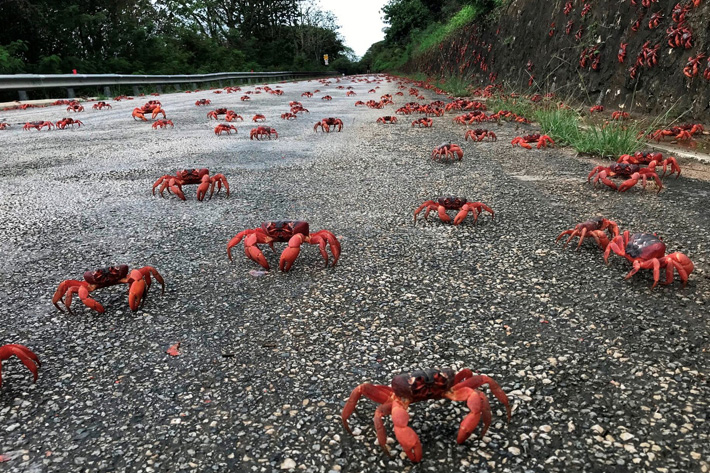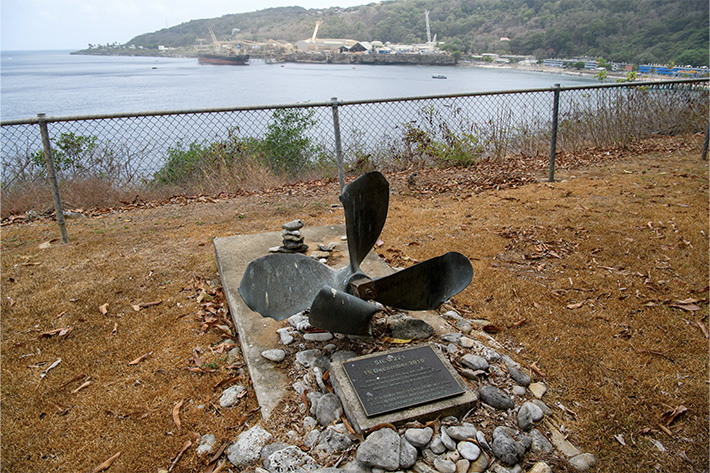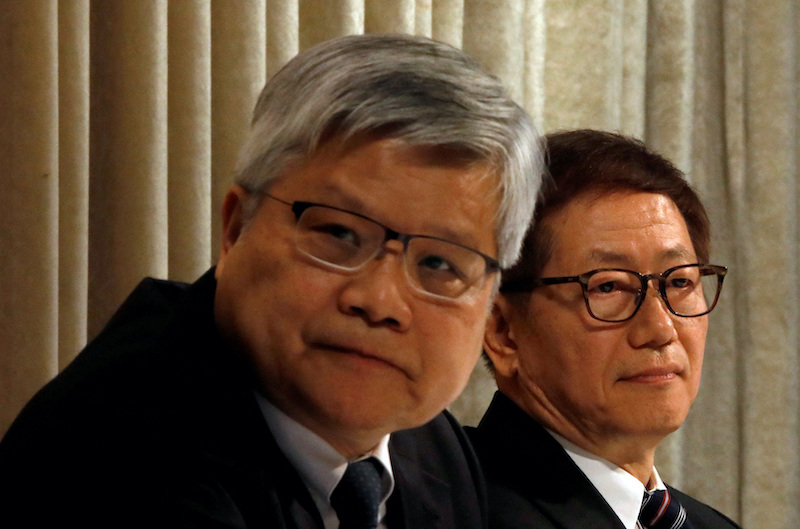Google plans to build a large artificial intelligence data centre on Christmas Island – a remote Australian outpost in the Indian Ocean – after signing a cloud deal with the Department of Defence earlier this year.
Plans for the data centre on the small island located 350 km (220 miles) south of Indonesia were revealed in documents reviewed by Reuters and confirmed in interviews with officials. They have not previously been reported, and many details, including its projected size, cost and potential uses, remain secret.
However, military experts say such a facility would be a valuable asset on the island, which is increasingly seen by defence officials as a critical frontline in monitoring Chinese submarine and other naval activity in the Indian Ocean.
ALSO SEE: China Blocks Use of Foreign AI Chips in State Data Centres
Google is in advanced talks to lease land near the island’s airport to construct the data hub, including a deal with a local mining company to secure its energy needs, Christmas Island Shire officials told Reuters and council meeting records show.
7MW centre linked to subsea cable
Google, which is owned by Alphabet, said the project was part of its work to deliver subsea cable infrastructure to boost digital resilience in Australia and the Indo-Pacific, and played down its size.
“We are not constructing ‘a large artificial intelligence data centre’ on Christmas Island,” a Google spokeswoman said in a statement to Reuters, adding that more details would be shared soon.
Planning documents show Google proposes an “additional future cable system” connecting Christmas Island to Asia.
A Christmas Island source, who declined to be named, said Google had requested a long-term energy supply deal for a 7 megawatt data centre, using diesel and renewable power. Google did not comment about its power requirements.
Australia’s Department of Infrastructure confirmed Google’s proposal was to establish a data centre on Christmas Island and included plans to connect the island to Darwin via a subsea cable.
“The department is in discussions with Google to ensure energy requirements for the proposed project are met without impacting supply to local residents and businesses,” it said in a statement.
Australia’s Department of Defence had no comment.
Frontline for defence
A recent tabletop war game involving the Australian, US and Japanese militaries highlighted Christmas Island’s role as a forward line of defence for Australia in any regional conflict, particularly its advantages for launching uncrewed weapons systems, or drones.
Bryan Clark, a former US Navy strategist who ran the war games, said having a forward “command and control” node on Christmas Island would be critical in a crisis with China or another adversary.
“The data centre is partly to allow you to do the kinds of AI-enabled command and control that you need to do in the future, especially if you rely on uncrewed systems for surveillance missions and targeting missions and even engagements,” Clark, now a Hudson Institute fellow, told Reuters.
Subsea cables provide more bandwidth for communication than a satellite, and greater reliability, because China would be expected to jam satellite communications or Starlink in a crisis, he said.
“If you’ve got a data centre on Christmas, you can do a lot of that through cloud infrastructure,” he added.
Australia’s defence department entered into a three-year cloud agreement with Google in July. Britain’s military recently announced a similar Google cloud deal, which it said will boost intelligence sharing with the United States.
Google applied last month for Australian environmental approvals to build the first subsea cable connecting Christmas Island to the northern Australian city of Darwin, where the US Marine Corps are based for six months of the year.

Building community support
Christmas Island Shire President Steve Pereira said his administration is examining the community impact of the proposed data centre before giving final construction approval.
The 135 square km (52 square mile) island, best known for its asylum seeker detention centre and the annual migration of millions of red crabs, has until recently struggled with poor telecommunications and its 1,600 residents lack job opportunities.
“There is support for it, providing this data centre actually does put back into the community with infrastructure, employment and adding economic value to the island,” Pereira said.
Residents are concerned at the impact the centre may have on energy supplies on the island, which is 1,500 km from mainland Australia and relies on diesel to supplement limited renewables.
The Department of Infrastructure said the Google project aligned with the Australian government’s goal of diversifying the island’s economy away from mining.
“All environmental and other planning requirements will need to be met for the project to proceed,” the spokesperson said, noting the island’s unique environment.
Two Christmas Island sources and a defence source said the data centre was of commercial benefit to Google because of the Indian Ocean location between Africa, Asia and Australia, as well as its potential defence uses.
Another recent war game on Christmas Island involved the rapid deployment of an advanced US HIMARS truck-mounted rocket system from Darwin, which drew a mixed response from residents.
Some anti-war protesters were fearful of the impact on tourism, while business people are hoping that increased defence activity will boost the economy, Pereira said.
“We are a strategic asset for defence,” he said.
“There are many industries on the island we have to protect. All of this will be closely considered for any new projects – whether it be defence or Google,” he added.
Retired Navy Commodore Peter Leavy, who lived on the island as a student, told Reuters he has taken several Australian defence groups to Christmas Island since last year, seeking to build community support for defence activities.
“Christmas Island is quite well positioned to at least monitor what is going through Sunda Strait, Lombok Strait, Malacca Straits. It is a really good location.”
- Reuters with additional editing by Jim Pollard
ALSO SEE:
Underwater Drone Deal as Australia Ramps up Maritime Defences
US Keen to Control More Ports, Cut China’s ‘Maritime Advantage’
Japanese Shipbuilder Wins $6.5 Billion Warship Deal With Australia
Australian Government Sues China-Linked Rare Earth Investors
China’s Sanctions on Hanwha Target US-Korean Shipbuilding Plan
CK Hutchison Ports Deal Deeply Entangled in US-China Trade War
Taiwan Says Chinese Ships Severed Island’s Internet Cables – AP
Taiwan Invasion ‘Could Wipe Off up to $1 Trillion Per Year’
Taiwan Defence Spending to Focus on ‘Total’ China Blockade
Shipyard Image Exposes China’s Massive Naval Build-up
























